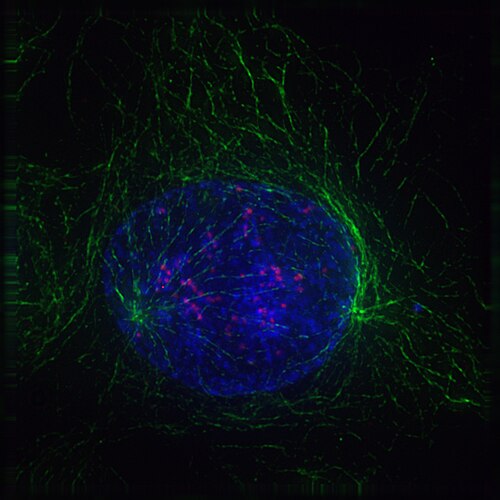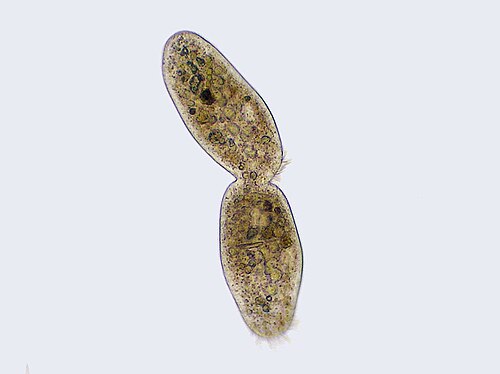Karyokinesisnoun
(biology) The process of change that takes place during the division of a cell nucleus at mitosis or meiosis.
Karyokinesisnoun
The indirect division of cells in which, prior to division of the cell protoplasm, complicated changes take place in the nucleus, attended with movement of the nuclear fibrils; - opposed to karyostenosis. The nucleus becomes enlarged and convoluted, and finally the threads are separated into two groups which ultimately become disconnected and constitute the daughter nuclei. Called also mitosis. See Cell development, under Cell.
Karyokinesisnoun
The changes that occur in the nucleus of a cell, especially movements of the chromosomes, in the process of cell division.
Karyokinesisnoun
organic process consisting of the division of the nucleus of a cell during mitosis or meiosis
Karyokinesisnoun
division of a cell nucleus during mitosis.
Mitosisnoun
(cytology) The division of a cell nucleus in which the genome is copied and separated into two identical halves. It is normally followed by cell division.
Mitosisnoun
See Karyokinesis.
Mitosisnoun
cell division in which the nucleus divides into nuclei containing the same number of chromosomes
Mitosisnoun
a type of cell division that results in two daughter cells each having the same number and kind of chromosomes as the parent nucleus, typical of ordinary tissue growth
Mitosis
In cell biology, mitosis () is a part of the cell cycle in which replicated chromosomes are separated into two new nuclei. Cell division gives rise to genetically identical cells in which the total number of chromosomes is maintained.











